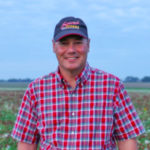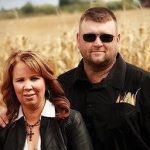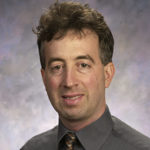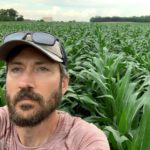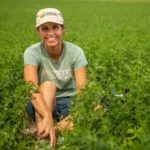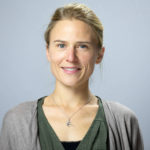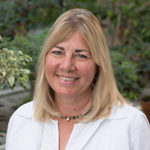Organic No-Till in Row Crop Systems
Thursday | 1-6:30 p.m. | CCAs: 4.5 CEU credits approved
Friday | 8-11:30 a.m. | CCAs: 3.0 CEU credits approved
High-producing organic no-till has long been identified as the Holy Grail of soil health. During this short course, we’ll hear from a variety of farmers and experts about making organic no-till work in a field crop system. Learn about successful adoption, the latest research, the necessary equipment and when organic no-till does and doesn’t work for farmers. Whether you are strongly considering transitioning to organic no-till, are already in the process or are just curious, this short course is for you.
Sessions
Session 1: Organic No-Till Q&A: Where We Are and What’s to Come?
Rick Clark, No-Till Innovator of the Year 2022 awardee, will share his organic no-till experiences and answer questions on all things organic no-till. Rick has incorporated regenerative farming practices on his family farm, which now encompasses 7,000 acres of 100% organic and 100% no-till land. Rick will open the floor for questions to start this session.
Session 2: Equipment Essentials in Organic No-Till
Having the right equipment – and knowing best practices for using it – can mean the difference between success and failure for those transitioning to organic no-till. Hear from Loran Steinlage as he shares his experiences as a farmer and engineer. He will discuss the equipment he uses in his system and where the future of no-till equipment is headed.
Session 3: Making Organic No-Till Work – The Latest From Western Illinois University Research
Farmers have faced many barriers to making organic no-till work in their operations. Is there a rotation where it works best? Is organic no-till always feasible? Joel Gruver has done extensive research on organic no-till cropping systems. In this session, he will present his research on what works and what doesn’t.
Session 4: Farmer-to-Farmer: Successes, Challenges and Opportunities With Organic No-Till
Michael O’Donnell and Andy Klemp will share their experiences working with organic no-till in their operations. Hear about when organic no-till fits in rotations and the barriers to making it work. During this conversational session, Michael and Andy will also answer attendee questions.
Session 5: Roller-Crimper Panel: Latest Research and Discussion
The roller-crimper is an essential implement for making organic no-till with cover crops work. As the roller-crimper gains traction on both organic and conventional farms, research continues to improve design and inform effective use. This expert panel will share the latest on best practices for using a roller crimper on cover crops.
Speakers
Dr. Erin Silva is associate professor and extension specialist in the University of Wisconsin-Madison Department of Plant Pathology. Her research includes projects involving organic no-till production and organic cover crop systems.
Léa Vereecke is an organic consultant with the Rodale Institute Midwest Organic Center based in Madison, Wisconsin. She earned a master’s degree in agronomy and agroecology, and for four years worked as research specialist with Erin Silva at the University of Wisconsin-Madison overseeing a variety of research projects.
Kathleen Delate is a professor and extension organic specialist at Iowa State University, where she leads organic research and education for both horticulture and agronomy programs. Her research focuses on pest management and soil fertility management strategies for transitioning and certified organic farmers.
Michael O’Donnell is the farm certification manager at Living Prairie Family Farms, a diversified organic grain farming operation based in Wolcott, Indiana. Originally from West Lafayette, Indiana, he earned a Bachelor of Science in mechanical engineering from Purdue University and a Master of Science in mechanical engineering from the University of Texas at Austin. He holds his certified crop adviser license in Indiana.
Andy Klemp farms in Wheatfield, Indiana, where he grows corn, popcorn, soybeans, black beans, wheat, cereal rye, barley and canola. Andy has had no-till, minimum-till and cover crops for 10 years and moved to organic six years ago. Andy successfully strip-tills into covers for organic corn and no-tills into cereal rye for organic soybeans.
Joel Gruver is professor of soil science and sustainable agriculture at Western Illinois University who also directs the WIU Organic Research Program. In 2015, Joel received the National No-Till Educator of the Year Award.
Loran Steinlage is an innovative agriculturalist who has expertise in intercropping, soil health and no-till practices. He is also a test engineer for Dawn Equipment and UndergroundAg. He and his wife, Brenda, own and operate FLOLO Farm near West Union, Iowa, raising corn, soybeans, cereal rye, winter wheat, malt barley and buckwheat.
Rick Clark and his family farm 7,000 acres in Warren County, Indiana, where they raise corn, soybeans, wheat and alfalfa. Rick and his family have been using cover crops for 10 years and are 100% no-till. More recently, Rick transitioned the farm to organic. Cover crops are an essential part of eliminating the use of herbicides on his acres.
- Rick Clark, Clark Land and Cattle in Warren County, Indiana
- Loran Steinlage, FLOLO Farm in West Union, Iowa
- Joel Gruver, associate professor of soil science and sustainable agriculture at Western Illinois University
- Michael O’Donnell, organic farm manager at Jason Federer Farms in Wolcott, Indiana
- Andy Klemp, Klemp Family Farm in Wheatfield, Indiana
- Dr. Erin Silva, associate professor and extension specialist at University of Wisconsin-Madison
- Léa Vereecke, organic consultant at Rodale Institute Midwest Organic Center in Madison, Wisconsin
- Kathleen Delate, professor and extension organic specialist at Iowa State University

